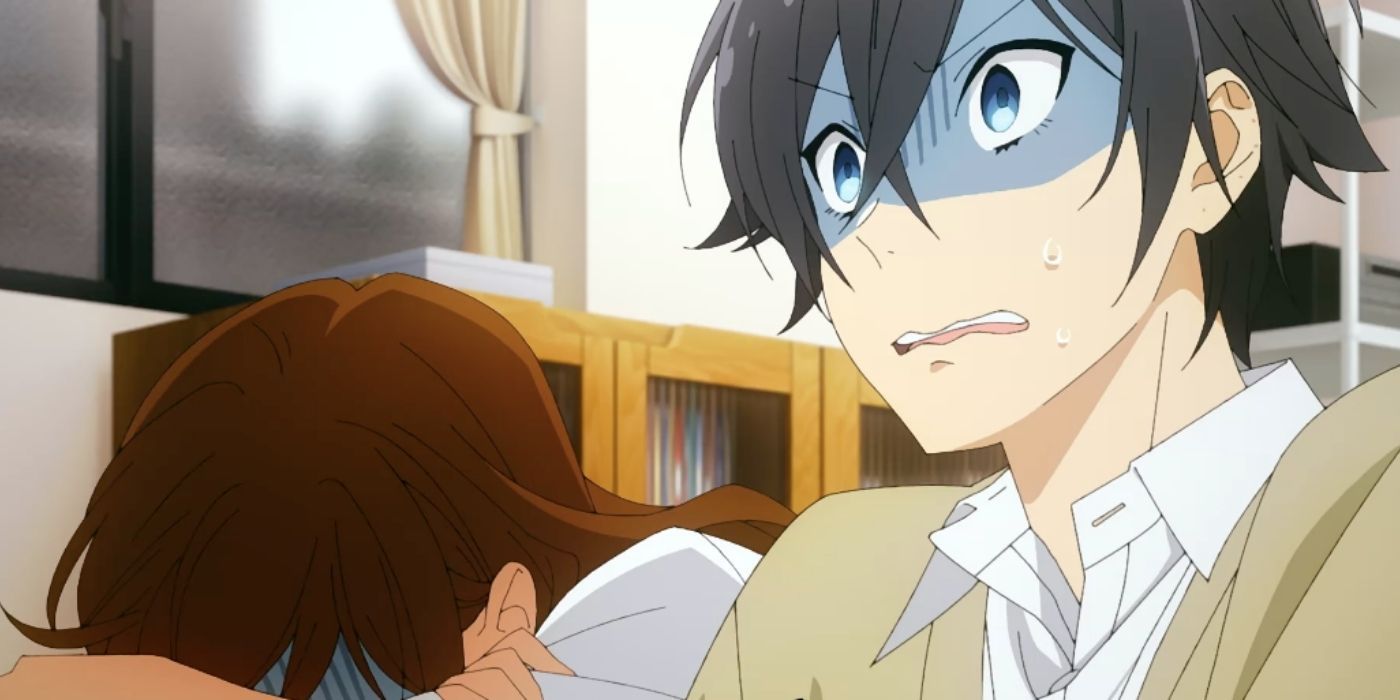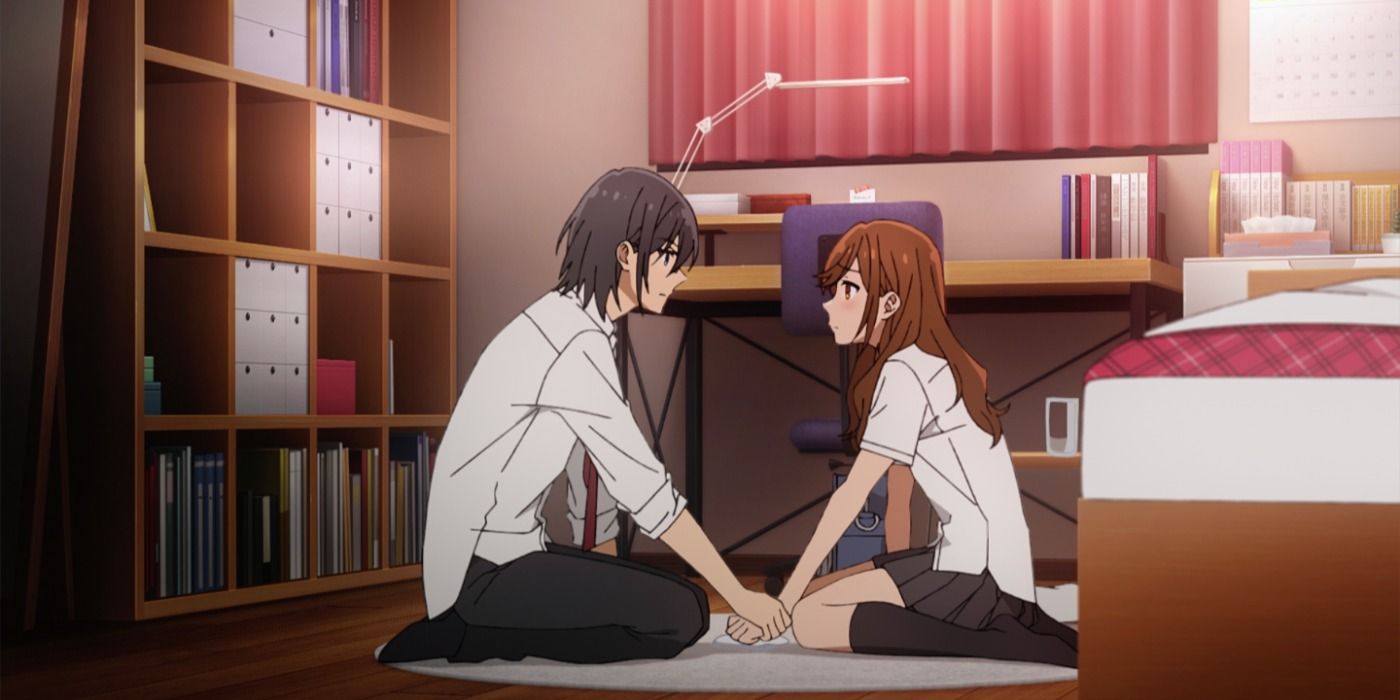
One of the standout anime series of this season, Horimiya has garnered praise for its colorful cast, along with its realistic and heartwarming portrayal of the relationships between its different characters. But one of the noteworthy aspects of Horimiya is how Hori and Miyamura's relationship isn't like your typical romantic partnership. Neither of them fit in the conventional roles of a girlfriend and boyfriend, creating a story that's otherwise rather mundane an unexpected but gratifying twist.

At school, Hori is the pretty and popular girl and because of that, she carries a certain image of being nice, polite, and gentle. But beneath that image, she isn't like what you would expect a "typical" girl to be. For one, she absolutely relishes watching horror movies -- the scarier the better. And what most people don't know is that outside of school, she's the type to throw a punch or strike a kick at someone. At home, her aggression is usually directed at her wayward father Kyosuke, once in the form of an impressive ax kick.
As for Miyamura, he's soft-spoken and shy. His family owning a bakery means that he often brings pastries from his shop or makes his own creations. He's described as pretty by people around him and he becomes a brotherly figure to Honoka, giving her cake to eat and protecting her from people who are up to no good. But when it comes to horror movies, he's an absolute scaredy-cat. We rarely see Miyamura ever get physically violent with people except to Shindo and later, reluctantly, Hori.
As typical gender roles would dictate, it's often the guy who's expected to protect the girl but this is reversed in Horimiya. When Hori sees Miyamura looking visibly uncomfortable when he meets his middle school bullies, she immediately goes to his rescue, punching the daylights out of them. She effectively becomes Miyamura's protector. Don't be mistaken though -- both characters are strong in their own right. Miyamura faced up to his trauma from middle school and chose to forgive Tanihara rather than harbor a grudge or seek revenge, which takes an inordinate amount of courage to do.

With relationship dynamics generally prescribed by gendered roles and norms, it's refreshing to see Horimiya not constrained by them. Taking care of someone isn't supposed to be depicted as "maternal," but somehow that's how we associate it. Getting into a fight for a loved one's sake isn't a "masculine" thing either. When Miyamura takes care of Hori when she falls ill, he's doing this because he's worried about her and wants to make sure she's looked after. Later, Hori is the one to walk Miyamura home at night instead of the other way around. She isn't thinking of him as a "guy" per se, but as someone she loves and wants to ensure gets home safely. Society arbitrarily puts labels on behaviors and actions in a binary manner.
At a certain point, Hori does get self-conscious of the fact that she's not as girly or cute as some of the other girls. She starts feeling insecure of her place as Miyamura's girlfriend and even tries to change herself by acting terrified of horror movies and accidentally scaring Miyamura instead. But neither of them fell in love with the other because one was a "cute girl" and the other was a "cute guy." As Miyamura said in Episode 7, he fell in love with Hori herself. He likes how she doesn't judge people by their appearance and didn't shun him after talking to him. In a way, the two of them fell in love with each other's souls, which is reaffirmed when the two take turns listening to each other's hearts.
That's what makes their relationship so strong. They aren't restrained by the labels that society puts on their behaviors or personalities. We're not watching a romance between a guy and a girl -- we're seeing two people fall in love, navigate the difficulties of being in their first relationship, and learning how to communicate and be around each other, thus transcending gender norms.
0 Comments